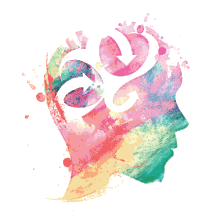
TAKE CHARGE OF YOUR MENTAL HEALTH RECOVERY
Once upon a time…
Own Your Life Again
-THE FABLE-
ONCE UPON A TIME…in a rural village, a woman named Kita, whose husband and one of her three children died in a recent ambush, was heartbroken and stricken with grief.
She was left with two young children, an eight-year-old and a six-month-old. She was devastated and bewildered about how she was going to do all the hard labor required to provide for her family. She was not alone. Other families lost children and spouses in the massacre. She knew she had to be strong for her children. Kita felt fortunate, however, that at least she had some extended family in the village and a market stall to sell their produce and ware.
To survive, she had to march daily, infant strapped to her chest and a weary eight-year by her side, to take the goods for sale to the market stall and carry back the needed produce for their household, a total of two miles. It was gruelling for her. She was worn down, tired, and irritable. After about a month of this daily walk, Kita yelled, “I can’t do this anymore.” She dreads this daily grind, and with the children in tow, the walk felt twice as long and was always followed by complete exhaustion. Her patience had vanished, and all she seemed to do was yell and cry, leaving her children upset and miserable, like her.
One day, as she walked the market, Kita found that the grip in her hands carrying these goods would slip, and the pain in her arms was too unbearable. In her mind, the weight of the baskets seemed to increase exponentially, as if bricks were being added with every step she took. The strain was too much for her to bear. The dread of continuing these daily trips consumed her waking and sleeping thoughts.
In desperation, Kita turned to the village elder for advice. With tears, she described her plight. After, the elder paused for what seemed like an eternity. Then he said, “Carry on as you have, but with one difference: no more holding the basket of supplies in both hands on the walk. Fashion a wooden staff to hold the two baskets while the pole rests across the nape of your neck, resting on a folded cloth for comfort. Place a series of three notches on the pole, one palm span from each other, starting from the middle of each staff and moving outwards. Your basket handle shall hang on these notches where the handles to the basket will rest and adjust accordingly while on your daily walk to the market and back.
A month later, the elder came to her market stall and saw the children laughing and playing. A smiling Kita began to speak, but the elder held up his hands for her to stop and said, “I see you found the answer to your problem, and you have ‘recovered’ yourself.” Your hands are free, and you carry the weight of goods with greater comfort. She nodded in affirmation.
The fable speaks of two pillars required for a recovery and describes what a recovery is all about. Recovery is not intended at first glance to reduce the basket’s weight, though this can be a secondary gain. Unlike a chemical recovery with medications that hold this objective to reduce the symptom weight of the mental illness carried, a personal recovery, on the other hand, looks at the way one carries the weight. Today, psychiatry continues to lead consumers to believe that pill-taking is the only way to hold the weight of mental illness as one marches forth in life.
However, the premise of this program breakthrough is to allow people living with major mental illnesses, like depression and anxiety conditions, to discover how to carry their illness in a way that frees their “hands” to cope more effectively and to enhance the richness of living life by repositioning the way the disorder (s) is carried, like with Kita’s experience.
The recovered in recovery, does not mean forsaking the “Pill”. For a few, a recovery partnered with medications is a powerful combination. Medications can and do have a valuable seat at the table with this recovery protocol. However, for many, the less medication taken, the better off they are when taking a recovery approach.
With the recovery protocol in play, the strain of mental illnesses’ perceived weight is lessened in grip, strength, and influence. This result frees up more personal space to breathe and to experience the richness of a person-led life.
Reflections
Recovery means re-holding the weight and stress of these mental illness conditions differently and in a manner that is exceptionally more freeing to one’s life than is presently experienced by aligning and exercising one’s strengths, values, and mental health building. This alignment allows one to reorient a life from the weight carried by illness-centered living to a person-centered orientation of strength, a freeing position. This program shows you how -The Fable
“We are all in this together.”
-The Recovery Specialist
